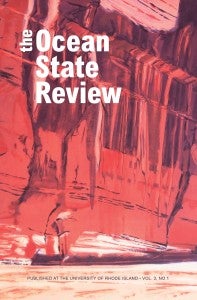Please click one of the collapsible tabs to read more about the 2014 Ocean State Summer Writing Conference.
These tabs may take a while to load!
To return to the current conference, click on “Ocean State Summer Writing Conference” above.
CLICK HERE TO VIEW THE 2014 OSSWC PHOTO ALBUM
-
CLICK HERE TO VIEW THE 2014 OSSWC PHOTO ALBUM
URI’S EIGHTH ANNUAL
OCEAN STATE SUMMER WRITING CONFERENCE
JUNE 19-21, 2014Master Classes; features on Young Adult Literature and Graphic Arts; Book discussions with faculty experts;
One-on-one consultations with editors2014 KEYNOTE SPEAKERS
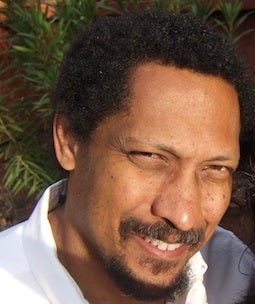
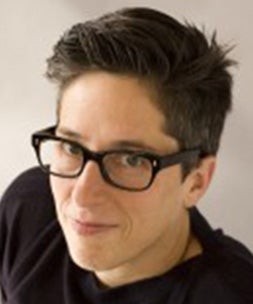
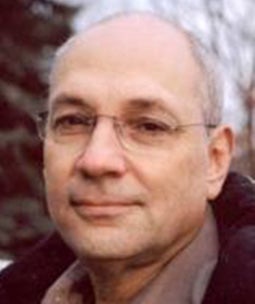
Percival Everett
Novelist
USCAlison Bechdel
Graphic Memoirist
Best-Selling AuthorCharles Bernstein
Poet
UPennAdditional Master Classes From:
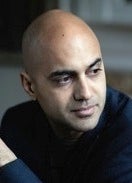
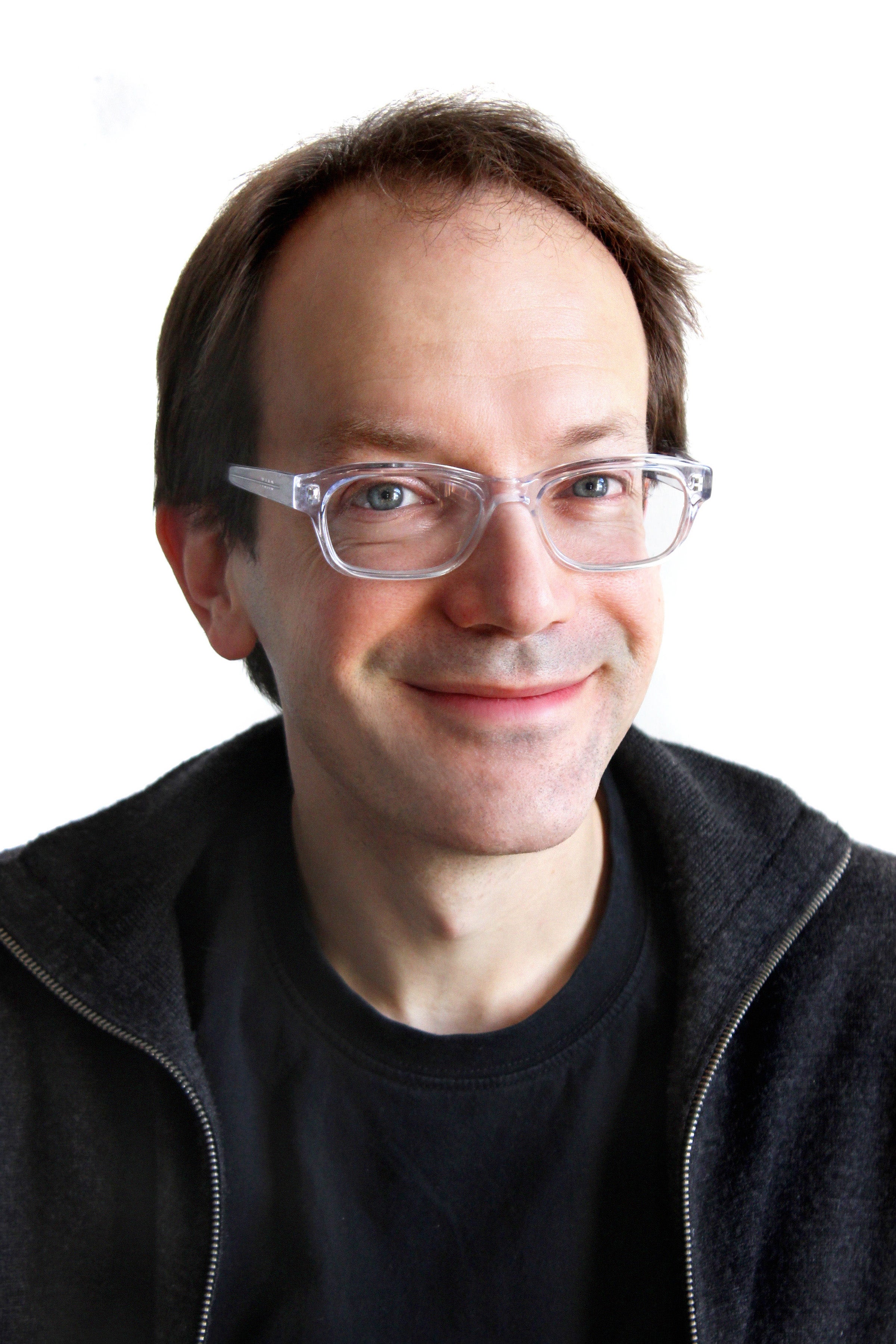
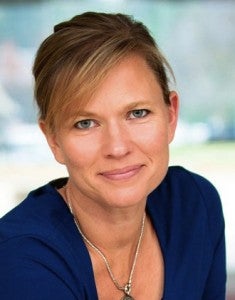
Ayad Akhtar
Dramatist
2013 Pulitzer Prize WinnerStephen Burt
PoetHarvardAmity Gaige
Novelist
2014 Folio Prize Finalist
Located within surfing distance of the Atlantic Ocean,
in Kingston, Rhode Island.Close to charming historic Newport.
By day, absorb the wisdom and insights of some of today’s
finest writers.By night, explore the area’s colonial history, natural landscapes and seascapes, or the art galleries, museums and world-class dining in
Narragansett, Newport, and Providence.Writers of all levels will find master classes, craft sessions, workshops in fiction, nonfiction, poetry, playwriting, and screenwriting
to suit their needs.DISCOVER THE OCEAN
STATE REVIEW
VOLUME 3
-
Keynote Speakers
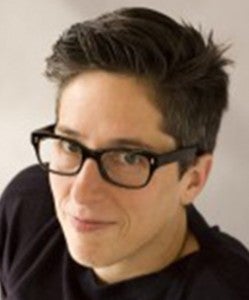 Alison Bechdel is a graphic memoirist who has written, drawn, and syndicated for thirty years the comic strip Dykes To Watch Out For. Bechdel gained wide recognition of her work with the publication in 2006 of her groundbreaking graphic memoir, Fun Home: A Family Tragicomic. Fun Home was a National Book Critics Circle Award Finalist, and in a great moment for graphic narrative, was named Best Book of 2006 by Time Magazine. Bechdel also received the Bill Whitehead Award for Lifetime Achievement in 2012. A 2012 Guggenheim Fellow, Bechdel is the author most recently of Are You My Mother: A Comic Drama (Houghton Mifflin Harcourt). Alison Bechdel’s Website
Alison Bechdel is a graphic memoirist who has written, drawn, and syndicated for thirty years the comic strip Dykes To Watch Out For. Bechdel gained wide recognition of her work with the publication in 2006 of her groundbreaking graphic memoir, Fun Home: A Family Tragicomic. Fun Home was a National Book Critics Circle Award Finalist, and in a great moment for graphic narrative, was named Best Book of 2006 by Time Magazine. Bechdel also received the Bill Whitehead Award for Lifetime Achievement in 2012. A 2012 Guggenheim Fellow, Bechdel is the author most recently of Are You My Mother: A Comic Drama (Houghton Mifflin Harcourt). Alison Bechdel’s Website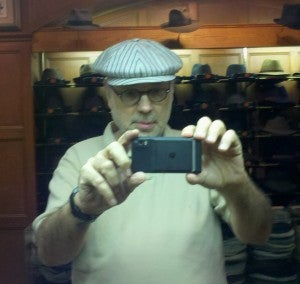 Charles Bernstein is a poet, theorist, and scholar who has, since the 1970’s, published dozens of books, including poetry and essay collections. His innovative poetry and writing on poetics has been widely anthologized and translated, and appeared in more than 500 magazines and periodicals worldwide. Bernstein co-founded SUNY Buffalo’s Poetics Program and Electronic Poetry Center, and University of Pennsylvania’s poetry archive, PENNsound. Bernstein was elected a Fellow of the American Academy of Arts and Sciences in 2006, and is a former Guggenheim Fellow; he is currently a Professor of English and Comparative Literature at the University of Pennsylvania. Charles Bernstein at the Electronic Poetry Center
Charles Bernstein is a poet, theorist, and scholar who has, since the 1970’s, published dozens of books, including poetry and essay collections. His innovative poetry and writing on poetics has been widely anthologized and translated, and appeared in more than 500 magazines and periodicals worldwide. Bernstein co-founded SUNY Buffalo’s Poetics Program and Electronic Poetry Center, and University of Pennsylvania’s poetry archive, PENNsound. Bernstein was elected a Fellow of the American Academy of Arts and Sciences in 2006, and is a former Guggenheim Fellow; he is currently a Professor of English and Comparative Literature at the University of Pennsylvania. Charles Bernstein at the Electronic Poetry Center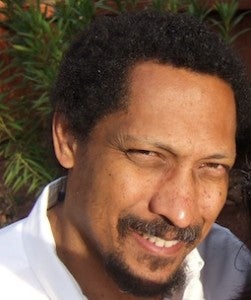
Percival Everett is the author of more than twenty novels, three collections of short fiction, and two volumes of poetry. Everett is the recipient of the PEN Center USA Award for Fiction, the Hurston/Wright Legacy Award, a New American Writing Award, and The Believer Book Award for I Am Not Sidney Poitier (2009). Everett’s stories have been included in the Pushcart Prize Anthology and Best American Short Stories. He received his MFA from Brown University. Everett teaches fiction writing and critical theory, and is currently Distinguished Professor of English at the University of Southern California. Percival Everett at Blue Flower Arts
Featured Master Classes
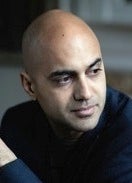 Ayad Akhtar is a novelist, playwright, screenwriter, and actor. His play Disgraced, won the 2013 Pulitzer Prize for Drama, along with the 2012 Jeff Equity Award for Best New Play. His novel American Dervish (2012), named a Best Book of the Year by Kirkus Reviews and Toronto’s The Globe and Mail, depicts a Pakistani-American boy’s coming of age in Milwaukee, Wisconsin, the town where Akhtar grew up. Akhtar starred in and co-wrote the screenplay for The War Within, nominated for an Independent Spirit Award for Best Screenplay and an International Press Academy Satellite Award. His play, The Who & The What, opens this month at Lincoln Center Theater; another play, The Invisible Hand premiers at New York Theater Workshop this Fall, which is when his play “Disgraced” hits Broadway. He has been heralded as a “significant and formidable dramatic writer” (Chris Jones, Chicago Tribune).
Ayad Akhtar is a novelist, playwright, screenwriter, and actor. His play Disgraced, won the 2013 Pulitzer Prize for Drama, along with the 2012 Jeff Equity Award for Best New Play. His novel American Dervish (2012), named a Best Book of the Year by Kirkus Reviews and Toronto’s The Globe and Mail, depicts a Pakistani-American boy’s coming of age in Milwaukee, Wisconsin, the town where Akhtar grew up. Akhtar starred in and co-wrote the screenplay for The War Within, nominated for an Independent Spirit Award for Best Screenplay and an International Press Academy Satellite Award. His play, The Who & The What, opens this month at Lincoln Center Theater; another play, The Invisible Hand premiers at New York Theater Workshop this Fall, which is when his play “Disgraced” hits Broadway. He has been heralded as a “significant and formidable dramatic writer” (Chris Jones, Chicago Tribune).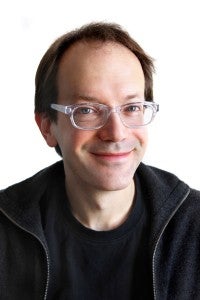 Stephen Burt is a poet, literary critic, and professor with eight published books, including two critical books on poetry and two poetry collections. His essay collection Close Calls with Nonsense (Graywolf Press, 2009) was a finalist for the National Book Critics Circle Award. Burt grew up around Washington, DC, and received an A.B. from Harvard in 1994 and a Ph.D. in English from Yale in 2000. He taught at Macalester College for several years before becoming a professor of English at Harvard University. The New York Times called Burt “one of the most influential poetry critics of his generation.” His writing has appeared in the New York Times Book Review, the London Review of Books, the Times Literary Supplement, the Believer, and the Boston Review.Stephen Burt’s Website
Stephen Burt is a poet, literary critic, and professor with eight published books, including two critical books on poetry and two poetry collections. His essay collection Close Calls with Nonsense (Graywolf Press, 2009) was a finalist for the National Book Critics Circle Award. Burt grew up around Washington, DC, and received an A.B. from Harvard in 1994 and a Ph.D. in English from Yale in 2000. He taught at Macalester College for several years before becoming a professor of English at Harvard University. The New York Times called Burt “one of the most influential poetry critics of his generation.” His writing has appeared in the New York Times Book Review, the London Review of Books, the Times Literary Supplement, the Believer, and the Boston Review.Stephen Burt’s Website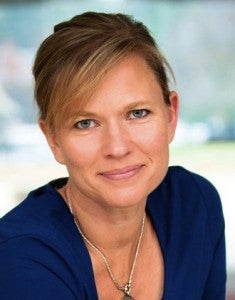 Amity Gaige is the author of the novels O My Darling (2005), The Folded World (2007) named ForeWord Book of the Year and one of the best books of 2007 by the Chicago Tribune, and Schroder (2013). Schroder, “ a radiant meditation on identity, memory and familial love” (Publisher’s Weekly) and an “offbeat, exquisitely written novel” (Jennifer Egan), has been translated into 14 languages, shortlisted for The FOLIO Prize, and named one of the best books of 2013 by over a dozen major journals including The New York Times Book Review and Washington Post. Gaige’s honors include a Fulbright Fellowship, a Baltic Writers Residency, and fellowships at The MacDowell Colony and Yaddo. In 2006 she was named one of the “5 under 35” outstanding emerging writers by the National Book Foundation. Gaige’s short stories, reviews and essays have appeared in The New York Times, O Magazine, One Story, The Yale Review and other venues. She is a founding Ocean State Summer Writing Conference workshop leader and is Visiting Writer at Amherst College in Amherst, Massachusetts. Amity Gaige’s Website
Amity Gaige is the author of the novels O My Darling (2005), The Folded World (2007) named ForeWord Book of the Year and one of the best books of 2007 by the Chicago Tribune, and Schroder (2013). Schroder, “ a radiant meditation on identity, memory and familial love” (Publisher’s Weekly) and an “offbeat, exquisitely written novel” (Jennifer Egan), has been translated into 14 languages, shortlisted for The FOLIO Prize, and named one of the best books of 2013 by over a dozen major journals including The New York Times Book Review and Washington Post. Gaige’s honors include a Fulbright Fellowship, a Baltic Writers Residency, and fellowships at The MacDowell Colony and Yaddo. In 2006 she was named one of the “5 under 35” outstanding emerging writers by the National Book Foundation. Gaige’s short stories, reviews and essays have appeared in The New York Times, O Magazine, One Story, The Yale Review and other venues. She is a founding Ocean State Summer Writing Conference workshop leader and is Visiting Writer at Amherst College in Amherst, Massachusetts. Amity Gaige’s WebsiteSeminars, Workshops, and Craft Sessions
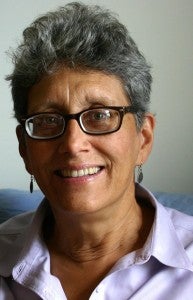 Malaga Baldi has worked as independent literary agent since 1986. The Baldi Agency is an independent and eclectic agency specializing in literary fiction, memoir and cultural history. Her first publishing job was as a cashier at Gotham Book Mart. Baldi also worked in the Ballantine Books Publicity Department, as an associate at Candida Donadio & Associates and the Elaine Markson Agency before going out on her own. Baldi believes the strength of the author’s voice and the heart of the story to be important factors when considering new work. Baldi graduated from Hampshire College and lives in NYC.
Malaga Baldi has worked as independent literary agent since 1986. The Baldi Agency is an independent and eclectic agency specializing in literary fiction, memoir and cultural history. Her first publishing job was as a cashier at Gotham Book Mart. Baldi also worked in the Ballantine Books Publicity Department, as an associate at Candida Donadio & Associates and the Elaine Markson Agency before going out on her own. Baldi believes the strength of the author’s voice and the heart of the story to be important factors when considering new work. Baldi graduated from Hampshire College and lives in NYC. Susan Bee is a painter, editor, and book artist, living in New York City. Bee has had seven solo shows at A.I.R. Gallery, NY. She had a solo show of her early paintings at A.I.R. Gallery in April 2014. She also had a solo show, “Criss Cross: New Paintings,” at Accola Griefen Gallery, NY in 2013. Bee is the co-editor with Mira Schor of M/E/A/N/I/N/G Online. She has published many artists’ books including collaborations with Charles Bernstein, Johanna Drucker, Susan Howe, Regis Bonvicino, Jerome Rothenberg, and Jerome McGann. Her artwork is in public and private collections including the Getty Museum, Victoria & Albert Museum, Yale University, New York Public Library, and the Harvard University Library. Her work has been reviewed in Art in America, Art News, The Forward, The New York Times, Art Papers, The New Yorker, and The Brooklyn Rail. Bee teaches at the University of Pennsylvania, Pratt Institute, and the School of Visual Arts. Susan Bee’s website is at: http://epc.buffalo.edu/authors/bee/
Susan Bee is a painter, editor, and book artist, living in New York City. Bee has had seven solo shows at A.I.R. Gallery, NY. She had a solo show of her early paintings at A.I.R. Gallery in April 2014. She also had a solo show, “Criss Cross: New Paintings,” at Accola Griefen Gallery, NY in 2013. Bee is the co-editor with Mira Schor of M/E/A/N/I/N/G Online. She has published many artists’ books including collaborations with Charles Bernstein, Johanna Drucker, Susan Howe, Regis Bonvicino, Jerome Rothenberg, and Jerome McGann. Her artwork is in public and private collections including the Getty Museum, Victoria & Albert Museum, Yale University, New York Public Library, and the Harvard University Library. Her work has been reviewed in Art in America, Art News, The Forward, The New York Times, Art Papers, The New Yorker, and The Brooklyn Rail. Bee teaches at the University of Pennsylvania, Pratt Institute, and the School of Visual Arts. Susan Bee’s website is at: http://epc.buffalo.edu/authors/bee/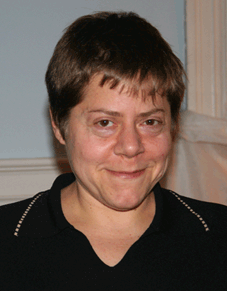 Carolyn Betensky confesses to being a professor so that she can teach and write about things that make her uncomfortable. Although she is really pretty happy most of the time, she has spent most of her academic career thinking about such topics as guilt, disgust, and procrastination, and she writes regularly on the insidiousness of officially uplifting cultural phenomena. Betensky loves to work with British nineteenth-century texts because of their explicit renderings of certain awkward cultural negotiations and fantasies that remain very much with us today.
Carolyn Betensky confesses to being a professor so that she can teach and write about things that make her uncomfortable. Although she is really pretty happy most of the time, she has spent most of her academic career thinking about such topics as guilt, disgust, and procrastination, and she writes regularly on the insidiousness of officially uplifting cultural phenomena. Betensky loves to work with British nineteenth-century texts because of their explicit renderings of certain awkward cultural negotiations and fantasies that remain very much with us today.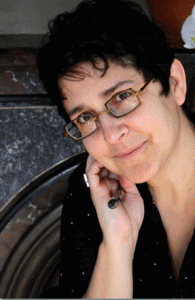 A 2011 Guggenheim Fellow in Nonfiction, Mary Cappello is the author of four books of literary nonfiction, including Called Back: My Reply to Cancer, My Return to Life (which won a Foreword Book of the Year Award, and Independent Publishers Prize), and Awkward: A Detour (a Los Angeles Times Bestseller). Her numerous essays and experimental prose appear in such venues as The Georgia Review, Salmagundi, and Cabinet Magazine. Her work has been featured in The New York Times, Salon.com, The Huffington Post, NPR, MSNBC, in guest author blogs for Powells Books, and on five separate occasions as Notable Essay of the Year in Best American Essays. A recipient of The Bechtel Prize for Educating the Imagination from Teachers and Writers Collaborative, and the Dorothea Lange-Paul Taylor Prize from Duke University’s Center for Documentary Studies, Cappello is a former Fulbright Lecturer at the Gorky Literary Institute (Moscow), and currently Professor of English and creative writing at URI. Based on her most recent book, Swallow, she has served as Distinguished Visiting Professor at U/Penn’s Grand Rounds in Otolaryngology, as Presidential Lecturer for the ABEA, and as co-curator of the newly refurbished Chevalier Jackson Foreign Body Collection in Philadelphia’s Mutter Museum.
A 2011 Guggenheim Fellow in Nonfiction, Mary Cappello is the author of four books of literary nonfiction, including Called Back: My Reply to Cancer, My Return to Life (which won a Foreword Book of the Year Award, and Independent Publishers Prize), and Awkward: A Detour (a Los Angeles Times Bestseller). Her numerous essays and experimental prose appear in such venues as The Georgia Review, Salmagundi, and Cabinet Magazine. Her work has been featured in The New York Times, Salon.com, The Huffington Post, NPR, MSNBC, in guest author blogs for Powells Books, and on five separate occasions as Notable Essay of the Year in Best American Essays. A recipient of The Bechtel Prize for Educating the Imagination from Teachers and Writers Collaborative, and the Dorothea Lange-Paul Taylor Prize from Duke University’s Center for Documentary Studies, Cappello is a former Fulbright Lecturer at the Gorky Literary Institute (Moscow), and currently Professor of English and creative writing at URI. Based on her most recent book, Swallow, she has served as Distinguished Visiting Professor at U/Penn’s Grand Rounds in Otolaryngology, as Presidential Lecturer for the ABEA, and as co-curator of the newly refurbished Chevalier Jackson Foreign Body Collection in Philadelphia’s Mutter Museum.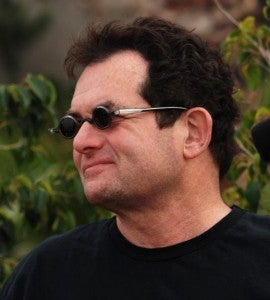 Rob Cohen is a writer and director who has worked across the expanse of the movie and television business, and directed films around the world. He was the Executive Producer/Creative Director of the series NextWorld and FutureCar, produced by CBS and aired on the Discovery Channel. He has also created programming for the History Channel, NBC and USA Networks. For 3 consecutive years, he wrote and directed the John McEnroe US Open tv special. Prior to his work at CBS, Rob Cohen directed and produced the film The Longest River, which was part of the PBS series, Quest. He also directed the opening film for the Super Bowl. He has just finished directing/writing the documentary feature Kinderblock 66: Return to Buchenwald. As a writer and director in advertising and corporate media, he has created films and television spots for the leading global brands including General Motors, Cisco, GAP, Sony, McDonalds, GE, and many others. Rob Cohen runs the production company Internal Combustion. He is currently under contract to write the new sitcom Wheels.
Rob Cohen is a writer and director who has worked across the expanse of the movie and television business, and directed films around the world. He was the Executive Producer/Creative Director of the series NextWorld and FutureCar, produced by CBS and aired on the Discovery Channel. He has also created programming for the History Channel, NBC and USA Networks. For 3 consecutive years, he wrote and directed the John McEnroe US Open tv special. Prior to his work at CBS, Rob Cohen directed and produced the film The Longest River, which was part of the PBS series, Quest. He also directed the opening film for the Super Bowl. He has just finished directing/writing the documentary feature Kinderblock 66: Return to Buchenwald. As a writer and director in advertising and corporate media, he has created films and television spots for the leading global brands including General Motors, Cisco, GAP, Sony, McDonalds, GE, and many others. Rob Cohen runs the production company Internal Combustion. He is currently under contract to write the new sitcom Wheels.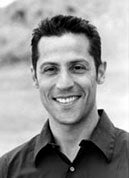 Peter Covino is a poet, translator, editor, and Associate Professor of English and Creative Writing at the University of Rhode Island. He is the author the poetry collections The Right Place to Jump (2012), recently featured on NPR, and on the Huffington Post, and Cut Off the Ears of Winter (2005) both from W. Michigan University Press, New Issues. His prizes include the 2007 PEN American/ Osterweil Award for emerging poets and the Frank O’Hara Poetry Prize for his chapbook Straight Boyfriend (2001). Recent poems appeared in such places as the American Poetry Review, Colorado Review, Gulf Coast, The Journal, LIT, The Paris Review, The Yale Review, and The Penguin Anthology of Italian-American Writing, among others. He is also one of the founding editors of Barrow Street Press; since 2009 he’s been the poetry editor of VIA: Voices in Italian Americana.
Peter Covino is a poet, translator, editor, and Associate Professor of English and Creative Writing at the University of Rhode Island. He is the author the poetry collections The Right Place to Jump (2012), recently featured on NPR, and on the Huffington Post, and Cut Off the Ears of Winter (2005) both from W. Michigan University Press, New Issues. His prizes include the 2007 PEN American/ Osterweil Award for emerging poets and the Frank O’Hara Poetry Prize for his chapbook Straight Boyfriend (2001). Recent poems appeared in such places as the American Poetry Review, Colorado Review, Gulf Coast, The Journal, LIT, The Paris Review, The Yale Review, and The Penguin Anthology of Italian-American Writing, among others. He is also one of the founding editors of Barrow Street Press; since 2009 he’s been the poetry editor of VIA: Voices in Italian Americana.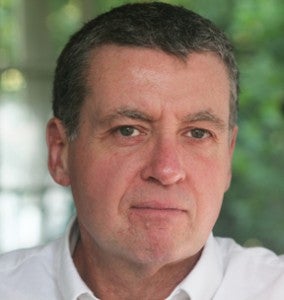 Edward J. Delaney is an award-winning author, journalist and filmmaker. His books include the novels Broken Irish and Warp & Weft and the short-story collection The Drowning and Other Stories. He was a 2008 National Endowment for the Arts Literary Fellow, a winner of the 2005 PEN/Winship Award for Fiction, and a past winner of an O. Henry Prize for short story writing. His work has appeared regularly in The Atlantic Monthly and other magazines, and has appeared in Best American Short Stories. He is also the co-author of Born to Play, My Life in the Game, by Boston Red Sox second baseman Dustin Pedroia. As a journalist, Delaney wrote for The Chicago Tribune Magazine, The Denver Post and other publications before beginning to write fiction.
Edward J. Delaney is an award-winning author, journalist and filmmaker. His books include the novels Broken Irish and Warp & Weft and the short-story collection The Drowning and Other Stories. He was a 2008 National Endowment for the Arts Literary Fellow, a winner of the 2005 PEN/Winship Award for Fiction, and a past winner of an O. Henry Prize for short story writing. His work has appeared regularly in The Atlantic Monthly and other magazines, and has appeared in Best American Short Stories. He is also the co-author of Born to Play, My Life in the Game, by Boston Red Sox second baseman Dustin Pedroia. As a journalist, Delaney wrote for The Chicago Tribune Magazine, The Denver Post and other publications before beginning to write fiction.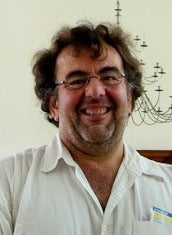 Paul Di Filippo sold his first professional short story in 1977. Since then, he’s had over thirty books of fiction and non-fiction published. His latest is Science Fiction: The 101 Best Novels 1985-2010, co-authored with fellow critic Damien Broderick. He lives in Providence, RI, with his partner of some thirty-seven years, Deborah Newton. His official website is http://paul-di-filippo.com/
Paul Di Filippo sold his first professional short story in 1977. Since then, he’s had over thirty books of fiction and non-fiction published. His latest is Science Fiction: The 101 Best Novels 1985-2010, co-authored with fellow critic Damien Broderick. He lives in Providence, RI, with his partner of some thirty-seven years, Deborah Newton. His official website is http://paul-di-filippo.com/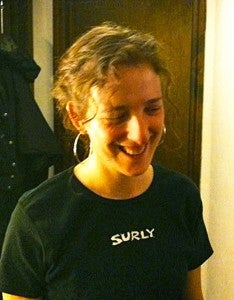 Ellen Goldstein was born in Virginia. Her work has appeared in journals such as Solstice, Post Road, The Common, Measure, Poetry Southeast, poemeleon, and in the anthologies Not Quite What I Was Planning: 6-Word Memoirs, Letters to the World, and The Bloomsbury Anthology of Contemporary Jewish American Poetry. She lives in Eastern Massachusetts.
Ellen Goldstein was born in Virginia. Her work has appeared in journals such as Solstice, Post Road, The Common, Measure, Poetry Southeast, poemeleon, and in the anthologies Not Quite What I Was Planning: 6-Word Memoirs, Letters to the World, and The Bloomsbury Anthology of Contemporary Jewish American Poetry. She lives in Eastern Massachusetts.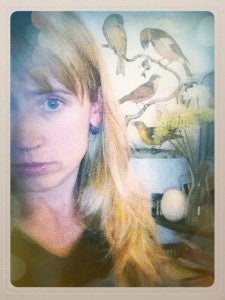 Susana Gardner is the author of the full-length poetry collections Caddish (Black Radish Books, 2013), HERSO An Heirship in Waves (Black Radish Books, 2011), and [LAPSED INSEL WEARY] (The Tangent Press, 2008). She has published several chapbooks, including Hyper-Phantasie Constructs (Dusie Kollektiv, 2010) and Herso (University of Theory and Memorabilia Press, 2009). Her poetry has appeared in many online and print publications including Jacket, How2, Puerto Del Sol, and Cambridge Literary Review among others. Her work has also been featured in several anthologies, including 131.839 slög með bilum (131,839 keystrokes with spaces) (Ntamo, Finland, 2007) and NOT FOR MOTHERS ONLY: CONTEMPORARY POEMS ON CHILD-GETTING AND CHILD-REARING (Fence Books, United States, 2007). She lives in Kingston, Rhode Island where she writes and makes books with her press, DUSIE.
Susana Gardner is the author of the full-length poetry collections Caddish (Black Radish Books, 2013), HERSO An Heirship in Waves (Black Radish Books, 2011), and [LAPSED INSEL WEARY] (The Tangent Press, 2008). She has published several chapbooks, including Hyper-Phantasie Constructs (Dusie Kollektiv, 2010) and Herso (University of Theory and Memorabilia Press, 2009). Her poetry has appeared in many online and print publications including Jacket, How2, Puerto Del Sol, and Cambridge Literary Review among others. Her work has also been featured in several anthologies, including 131.839 slög með bilum (131,839 keystrokes with spaces) (Ntamo, Finland, 2007) and NOT FOR MOTHERS ONLY: CONTEMPORARY POEMS ON CHILD-GETTING AND CHILD-REARING (Fence Books, United States, 2007). She lives in Kingston, Rhode Island where she writes and makes books with her press, DUSIE.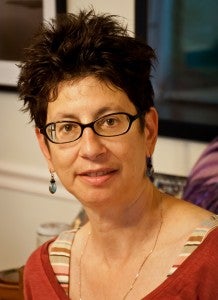 Amy Hoffman‘s third memoir, Lies About My Family, was published by the University of Massachusetts Press in April 2013. She is the author of two previous, award-winning memoirs: An Army of Ex-Lovers, about the Boston weekly Gay Community News and the lesbian and gay movement of the late 1970s (UMass, 2007); and Hospital Time, about caring for friends with AIDS (Duke, 1997). Hoffman is editor of Women’s Review of Books and teaches creative nonfiction in the Solstice Low-Residency MFA Program at Pine Manor College. She has been an editor at Gay Community News, South End Press, the Unitarian Universalist World magazine, and The Public Eye. She taught writing and literature at the University of Massachusetts and Emerson College and served as development director for the Massachusetts Foundation for the Humanities and the Women’s Lunch Place, a daytime shelter for homeless women. She has served on the boards of Gay Community News, GLAD, Sojourner, and Boston’s LGBT History Project. Hoffman has a BA in English from Brandeis University and an MFA in creative writing from the University of Massachusetts at Amherst. She lives in Boston with her wife, Roberta Stone, and is currently working on a novel set in Provincetown, Massachusetts.
Amy Hoffman‘s third memoir, Lies About My Family, was published by the University of Massachusetts Press in April 2013. She is the author of two previous, award-winning memoirs: An Army of Ex-Lovers, about the Boston weekly Gay Community News and the lesbian and gay movement of the late 1970s (UMass, 2007); and Hospital Time, about caring for friends with AIDS (Duke, 1997). Hoffman is editor of Women’s Review of Books and teaches creative nonfiction in the Solstice Low-Residency MFA Program at Pine Manor College. She has been an editor at Gay Community News, South End Press, the Unitarian Universalist World magazine, and The Public Eye. She taught writing and literature at the University of Massachusetts and Emerson College and served as development director for the Massachusetts Foundation for the Humanities and the Women’s Lunch Place, a daytime shelter for homeless women. She has served on the boards of Gay Community News, GLAD, Sojourner, and Boston’s LGBT History Project. Hoffman has a BA in English from Brandeis University and an MFA in creative writing from the University of Massachusetts at Amherst. She lives in Boston with her wife, Roberta Stone, and is currently working on a novel set in Provincetown, Massachusetts.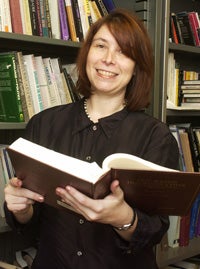 Born and raised in Los Angeles, Valerie Karno grew up with film, television, and music as part of her self-constitution. With a B.A. from UC Berkeley in English, she then received a J.D. from Hastings College of the Law. There she was Editor-in-Chief of both the International and Comparative Law Review, and the Women’s Law Journal. During law school she published essays on the CITES treaty, and feminist legal theory. Karno works as a Pre-Law and Honors advisor at URI, and is involved with the Multicultural Center in moderating speaking events and conducting Diversity workshops related to law. She has received numerous publishing and teaching awards, the most enriching of which recently was an NEH award to study Punishment with Austin Sarat.
Born and raised in Los Angeles, Valerie Karno grew up with film, television, and music as part of her self-constitution. With a B.A. from UC Berkeley in English, she then received a J.D. from Hastings College of the Law. There she was Editor-in-Chief of both the International and Comparative Law Review, and the Women’s Law Journal. During law school she published essays on the CITES treaty, and feminist legal theory. Karno works as a Pre-Law and Honors advisor at URI, and is involved with the Multicultural Center in moderating speaking events and conducting Diversity workshops related to law. She has received numerous publishing and teaching awards, the most enriching of which recently was an NEH award to study Punishment with Austin Sarat.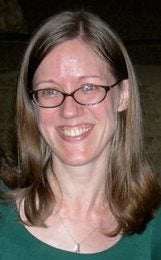 Sara LaFleur is an Associate Editor at Nancy Paulsen Books, an imprint of Penguin Young Readers Group. She’s worked with award-winning authors and artists such as Adele Griffin, Robin McKinley, Jacqueline Woodson, Polly Shulman, Brenda Woods, Maira Kalman, Tomie dePaola, David Ezra Stein, Rachel Isadora, and Teri Terry (debut author of the riveting Slated trilogy). Sara works on books for all age groups in a wide range of genres. Currently, she is especially interested in acquiring middle grade and YA historical fiction, nonfiction, and literary science fiction. Please send submissions to Sara.LaFleur@us.penguingroup.com.
Sara LaFleur is an Associate Editor at Nancy Paulsen Books, an imprint of Penguin Young Readers Group. She’s worked with award-winning authors and artists such as Adele Griffin, Robin McKinley, Jacqueline Woodson, Polly Shulman, Brenda Woods, Maira Kalman, Tomie dePaola, David Ezra Stein, Rachel Isadora, and Teri Terry (debut author of the riveting Slated trilogy). Sara works on books for all age groups in a wide range of genres. Currently, she is especially interested in acquiring middle grade and YA historical fiction, nonfiction, and literary science fiction. Please send submissions to Sara.LaFleur@us.penguingroup.com.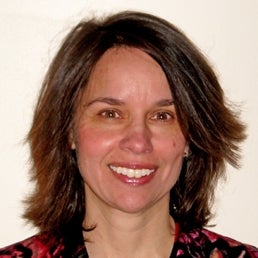 Lisa Lebduska teaches writing and directs the college writing program at Wheaton College in Massachusetts. She researches the teaching of composition within social and digital contexts and sees both her research and her writing as a way to understand. Her creative non-fiction has appeared in such journals as Writing on the Edge, College Composition and Communication and Narrative.
Lisa Lebduska teaches writing and directs the college writing program at Wheaton College in Massachusetts. She researches the teaching of composition within social and digital contexts and sees both her research and her writing as a way to understand. Her creative non-fiction has appeared in such journals as Writing on the Edge, College Composition and Communication and Narrative.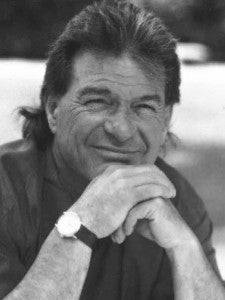 Robert Leuci is the author of the novels Doyle’s Disciples (1984), Captain Butterfly (1987), Odessa Beach (1990), The Snitch (1991). Fence Jumpers (1993) — described as a “A Mafia Opera worthy of Verdi” (Kirkus Reviews), Double Edge (1995), and Blaze (2003). His publications include the memoir All The Centurions (2008) and several short stories. Leuci wrote a radio play for German radio, Brooklyn Roofs as well as television plays End Of The Month, for the Arts and Entertainment network show “100 Centre Street,” and The Muster Room for Public Television. He has written and produced three television episodes for the national television news program “A Current Affair”, exploring the problems in American Policing. In 2013, in collaboration with Rhode Island icon, Arlen Violet, Leuci has written a one act play, “The Centurion” based on his memoir; and was shown at the Manhattan Repertory Theater last August, and will be shown at Roger Williams in July 2014. In the fall Bob’s short story, “Olneyville” will be part of an anthology on Providence neighborhoods edited by Ann Hood. Bob’s short story, “A Killer Overhead” will be adapted for the screen by Andrew Pilkington, a student of Bob’s at URI.
Robert Leuci is the author of the novels Doyle’s Disciples (1984), Captain Butterfly (1987), Odessa Beach (1990), The Snitch (1991). Fence Jumpers (1993) — described as a “A Mafia Opera worthy of Verdi” (Kirkus Reviews), Double Edge (1995), and Blaze (2003). His publications include the memoir All The Centurions (2008) and several short stories. Leuci wrote a radio play for German radio, Brooklyn Roofs as well as television plays End Of The Month, for the Arts and Entertainment network show “100 Centre Street,” and The Muster Room for Public Television. He has written and produced three television episodes for the national television news program “A Current Affair”, exploring the problems in American Policing. In 2013, in collaboration with Rhode Island icon, Arlen Violet, Leuci has written a one act play, “The Centurion” based on his memoir; and was shown at the Manhattan Repertory Theater last August, and will be shown at Roger Williams in July 2014. In the fall Bob’s short story, “Olneyville” will be part of an anthology on Providence neighborhoods edited by Ann Hood. Bob’s short story, “A Killer Overhead” will be adapted for the screen by Andrew Pilkington, a student of Bob’s at URI.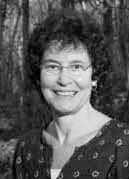 Jody Lisberger, PhD, MFA. Jody Lisberger’s story collection, Remember Love (Fleur-de-Lis Press, 2008), was nominated for a National Book Award. Her stories have appeared in Fugue, Michigan Quarterly Review, Thema, Confrontation, and The Louisville Review. She has won fiction prizes from American Literary Review and Quarterly West, and her story “Crucible” was nominated for a Pushcart Award. She is on the fiction faculty at the brief residency MFA in Writing Program at Spalding University, Louisville, Kentucky. She has taught fiction, creative nonfiction, literature, and feminist theory at Brown, Harvard, Tufts, Holy Cross, Boston University, and University of Rhode Island, where she is currently the Director of Women’s Studies. She has also recently published creative nonfiction essays on pharmaceutical marketing (“Why Women Should Take Heed”), gender issues in the workplace (“The Politics of Data”), and worked as a journalist, editor, and grant writer.
Jody Lisberger, PhD, MFA. Jody Lisberger’s story collection, Remember Love (Fleur-de-Lis Press, 2008), was nominated for a National Book Award. Her stories have appeared in Fugue, Michigan Quarterly Review, Thema, Confrontation, and The Louisville Review. She has won fiction prizes from American Literary Review and Quarterly West, and her story “Crucible” was nominated for a Pushcart Award. She is on the fiction faculty at the brief residency MFA in Writing Program at Spalding University, Louisville, Kentucky. She has taught fiction, creative nonfiction, literature, and feminist theory at Brown, Harvard, Tufts, Holy Cross, Boston University, and University of Rhode Island, where she is currently the Director of Women’s Studies. She has also recently published creative nonfiction essays on pharmaceutical marketing (“Why Women Should Take Heed”), gender issues in the workplace (“The Politics of Data”), and worked as a journalist, editor, and grant writer.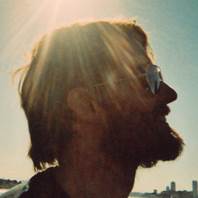 Paul Lyons runs the Hidden Fortress Press in Olneyville, which puts out the ambitious horror anthology MONSTER (Monster 2010 was physically huge, Monster 2013 was 3 volumes, 2-color with letter pressed covers and a silk screened wrap). He has a drawing zine called Thirteen Sided Die, and is working on a forthcoming comics anthology devoted to professional wrestling called Screwjob.
Paul Lyons runs the Hidden Fortress Press in Olneyville, which puts out the ambitious horror anthology MONSTER (Monster 2010 was physically huge, Monster 2013 was 3 volumes, 2-color with letter pressed covers and a silk screened wrap). He has a drawing zine called Thirteen Sided Die, and is working on a forthcoming comics anthology devoted to professional wrestling called Screwjob.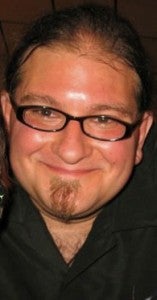 Michael Gerhard Martin grew up in rural Pennsylvania, and took his MFA from the University of Pittsburgh. He teaches Rhetoric at Babson College, and is the Fiction instructor for the Johns Hopkins Center for Talented Youth Summer Programs, where he attended his first workshops. He has been a finalist for the Nelligan Prize, a Glimmer Train New Writers contest, the Hudson Prize, and the Iowa and John Simmons Fiction awards; he is the winner of the 2013 James Knudsen Prize from UNO. His work has appeared in Junctures and Bayou Magazine, and his book, titled Easiest If I Had A Gun: Stories, is coming this Fall from Braddock Avenue Books.
Michael Gerhard Martin grew up in rural Pennsylvania, and took his MFA from the University of Pittsburgh. He teaches Rhetoric at Babson College, and is the Fiction instructor for the Johns Hopkins Center for Talented Youth Summer Programs, where he attended his first workshops. He has been a finalist for the Nelligan Prize, a Glimmer Train New Writers contest, the Hudson Prize, and the Iowa and John Simmons Fiction awards; he is the winner of the 2013 James Knudsen Prize from UNO. His work has appeared in Junctures and Bayou Magazine, and his book, titled Easiest If I Had A Gun: Stories, is coming this Fall from Braddock Avenue Books.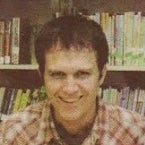 Walker Mettling runs the Providence Comics Consortium, which integrates children cartoonists’ work with that of adult artists in zines, comics and book-sized anthologies, and provides free comics classes around Rhode Island. He has a printing studio in the back of Ada Books.
Walker Mettling runs the Providence Comics Consortium, which integrates children cartoonists’ work with that of adult artists in zines, comics and book-sized anthologies, and provides free comics classes around Rhode Island. He has a printing studio in the back of Ada Books.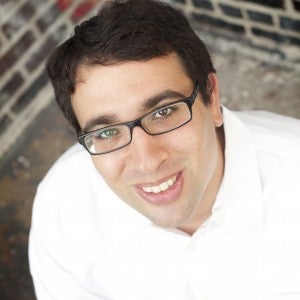 Ilan Mochari‘s Pushcart-nominated debut novel, Zinsky the Obscure (Fomite Press, 2013), has earned rave reviews from Publishers Weekly, Kirkus, and Booklist. Boston’s NPR station listed it as one of its ten “Good Reads for the Summer.” The book was also featured in the Boston Globe‘s Word on the Street column. Ilan’s short stories have appeared in Keyhole, Stymie, and Midway Journal. Another story earned an honorable mention in a Glimmer Train competition. He is a Senior Writer for Inc magazine. In 1997, he earned a B.A. in English from Yale University. He used it to wait tables for nine years in the Boston area.
Ilan Mochari‘s Pushcart-nominated debut novel, Zinsky the Obscure (Fomite Press, 2013), has earned rave reviews from Publishers Weekly, Kirkus, and Booklist. Boston’s NPR station listed it as one of its ten “Good Reads for the Summer.” The book was also featured in the Boston Globe‘s Word on the Street column. Ilan’s short stories have appeared in Keyhole, Stymie, and Midway Journal. Another story earned an honorable mention in a Glimmer Train competition. He is a Senior Writer for Inc magazine. In 1997, he earned a B.A. in English from Yale University. He used it to wait tables for nine years in the Boston area.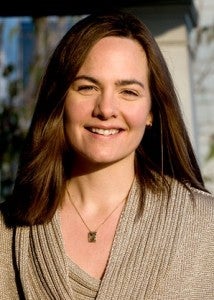 Christine Montross is Assistant Professor of Psychiatry and Human Behavior, and Co-director of the Medical Humanities and Bioethics Scholarly Concentration at the Warren Alpert Medical School of Brown University. She is also a staff psychiatrist at Butler Hospital in Providence, Rhode Island. She received her undergraduate degrees and a Master of Fine Arts in poetry from the University of Michigan. Dr. Montross has been named a 2010 MacColl Johnson fellow in Poetry, and the winner of the 2009 Eugene and Marilyn Glick Emerging Indiana Authors Award. She has had several poems published in literary journals, and her manuscript Embouchure was a finalist for the National Poetry Series. She has also written for many national publications. Dr. Montross’s first book, Body of Work, was named an Editors’ Choice by The New York Times and one of The Washington Post‘s best nonfiction books of 2007. Her second book, Falling Into the Fire was named a New Yorker Book to Watch Out For.
Christine Montross is Assistant Professor of Psychiatry and Human Behavior, and Co-director of the Medical Humanities and Bioethics Scholarly Concentration at the Warren Alpert Medical School of Brown University. She is also a staff psychiatrist at Butler Hospital in Providence, Rhode Island. She received her undergraduate degrees and a Master of Fine Arts in poetry from the University of Michigan. Dr. Montross has been named a 2010 MacColl Johnson fellow in Poetry, and the winner of the 2009 Eugene and Marilyn Glick Emerging Indiana Authors Award. She has had several poems published in literary journals, and her manuscript Embouchure was a finalist for the National Poetry Series. She has also written for many national publications. Dr. Montross’s first book, Body of Work, was named an Editors’ Choice by The New York Times and one of The Washington Post‘s best nonfiction books of 2007. Her second book, Falling Into the Fire was named a New Yorker Book to Watch Out For.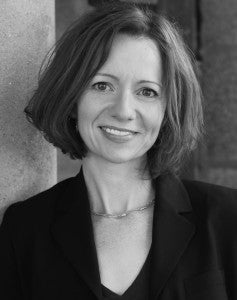 Maria Mutch was born and raised in Canada, and has a degree in visual art. Her essays and fiction have appeared in Poets & Writers, Guernica, Necessary Fiction, Fiction Writers Review, Ocean State Review, Bayou Magazine and Literary Mama, among others. Know the Night, her debut memoir about a boy who doesn’t speak, polar exploration and jazz, is published by Simon & Schuster in March, 2014. She lives in Rhode Island.
Maria Mutch was born and raised in Canada, and has a degree in visual art. Her essays and fiction have appeared in Poets & Writers, Guernica, Necessary Fiction, Fiction Writers Review, Ocean State Review, Bayou Magazine and Literary Mama, among others. Know the Night, her debut memoir about a boy who doesn’t speak, polar exploration and jazz, is published by Simon & Schuster in March, 2014. She lives in Rhode Island.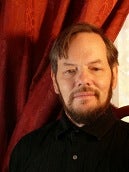 Russell Potter was born and raised in Cleveland Ohio; he attended Goddard College and The Evergreen State College, and earned his Ph.D. in English from Brown University. He’s the author of nonfiction books on topics as varied as the history of Hip-hop and British Arctic exploration, and appeared in Arctic Passage, an Emmy-nominated episode of PBS’s NOVA in 2006. His debut novel, PYG: The Memoirs of Toby, the Learned Pig, is based on the career of an actual “learned” pig that toured England in the 1780’s. Toby’s performances consisted of answering questions from the audience by spelling out his answers using cards on which individual letters of the alphabet were written. The pig’s ability to reply to all manner of inquiries amazed all who saw him, prompting the poet Robert Southey to declare him “a far greater object of admiration to the English nation than ever was Sir Isaac Newton.” PYG was originally published in the UK by Canongate Books in 2011, and will be published in the US as a paperback original by Penguin Books in August of 2012. He lives in Providence and is Professor of English at Rhode Island College.
Russell Potter was born and raised in Cleveland Ohio; he attended Goddard College and The Evergreen State College, and earned his Ph.D. in English from Brown University. He’s the author of nonfiction books on topics as varied as the history of Hip-hop and British Arctic exploration, and appeared in Arctic Passage, an Emmy-nominated episode of PBS’s NOVA in 2006. His debut novel, PYG: The Memoirs of Toby, the Learned Pig, is based on the career of an actual “learned” pig that toured England in the 1780’s. Toby’s performances consisted of answering questions from the audience by spelling out his answers using cards on which individual letters of the alphabet were written. The pig’s ability to reply to all manner of inquiries amazed all who saw him, prompting the poet Robert Southey to declare him “a far greater object of admiration to the English nation than ever was Sir Isaac Newton.” PYG was originally published in the UK by Canongate Books in 2011, and will be published in the US as a paperback original by Penguin Books in August of 2012. He lives in Providence and is Professor of English at Rhode Island College.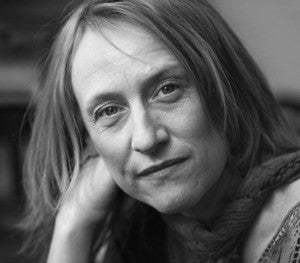 Kristin Prevallet is a poet, performer, and hypnotherapist who is the author of five books including the critically acclaimed I, Afterlife: Essay in Mourning Time (Essay Press). Recently published Everywhere Here and in Brooklyn: A Four Quartets (Belladonna, 2012) and You, Resourceful: Tap Your Inner Resources to Restore Your Mind and Body (Wide Reality Books). Her writing appears in Fourth Genre, Stonecutter, Spoon River Review, and several anthologies including I’ll Drown My Book: Conceptual Writing By Women. An associate of Bard College’s Writing and Thinking Program, in 2013 she is a visiting writer at Poet’s House, Spalding University, and Naropa University.
Kristin Prevallet is a poet, performer, and hypnotherapist who is the author of five books including the critically acclaimed I, Afterlife: Essay in Mourning Time (Essay Press). Recently published Everywhere Here and in Brooklyn: A Four Quartets (Belladonna, 2012) and You, Resourceful: Tap Your Inner Resources to Restore Your Mind and Body (Wide Reality Books). Her writing appears in Fourth Genre, Stonecutter, Spoon River Review, and several anthologies including I’ll Drown My Book: Conceptual Writing By Women. An associate of Bard College’s Writing and Thinking Program, in 2013 she is a visiting writer at Poet’s House, Spalding University, and Naropa University.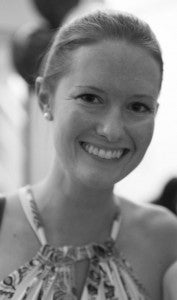 Shauna Rossano is an Associate Editor at G. P. Putnam’s Sons, a division of Penguin Young Readers Group where she has been lucky enough to work with many immensely talented authors and artists, including some of her own childhood favorites like Tomie dePaola and Jan Brett. Shauna works on books for readers of all ages-from picture books to young adult novels, and everything in between. She edited the Children’s Choice Book Award winner, Little Pink Pup by Johanna Kerby, the IRA Children’s Book Award winner, Wanted: The Perfect Pet by Fiona Roberton, and Kit Chase’s adorable debut, Oliver’s Tree. Some of the novels she has edited include the lyrical, futuristic tale Orleans by award-winning author Sherri L. Smith, the page-turning psychological thriller Forget Me by K.A. Harrington, and the charming middle grade foodie adventure All Four Stars by debut author Tara Dairman. While open to books for all ages, she is currently on the hunt for middle grade fiction with a strong voice (magical realism always welcome!), robust historical or fantasy-based fiction with a commercial hook, and young, funny/quirky picture books. Shauna accepts submissions from conference attendees for up to 3 months after the conference date. Please send submissions to PutnamConfSubs@gmail.com with the name of the conference in the subject line.
Shauna Rossano is an Associate Editor at G. P. Putnam’s Sons, a division of Penguin Young Readers Group where she has been lucky enough to work with many immensely talented authors and artists, including some of her own childhood favorites like Tomie dePaola and Jan Brett. Shauna works on books for readers of all ages-from picture books to young adult novels, and everything in between. She edited the Children’s Choice Book Award winner, Little Pink Pup by Johanna Kerby, the IRA Children’s Book Award winner, Wanted: The Perfect Pet by Fiona Roberton, and Kit Chase’s adorable debut, Oliver’s Tree. Some of the novels she has edited include the lyrical, futuristic tale Orleans by award-winning author Sherri L. Smith, the page-turning psychological thriller Forget Me by K.A. Harrington, and the charming middle grade foodie adventure All Four Stars by debut author Tara Dairman. While open to books for all ages, she is currently on the hunt for middle grade fiction with a strong voice (magical realism always welcome!), robust historical or fantasy-based fiction with a commercial hook, and young, funny/quirky picture books. Shauna accepts submissions from conference attendees for up to 3 months after the conference date. Please send submissions to PutnamConfSubs@gmail.com with the name of the conference in the subject line.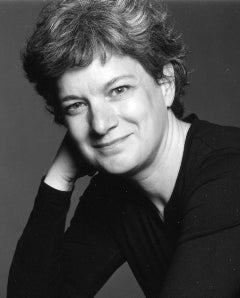 Elaine Sexton is the author of two collections of poetry, Sleuth and Causeway, both with New Issues (WMU). Her poems, reviews, and essays have appeared in numerous journals including American Poetry Review, Art in America, Oprah Magazine, Pleiades and Poetry. She teaches text and image workshops at the Sarah Lawrence College Writing Institute and has curated numerous site-specific events in New York. Her art work will be the subject of two exhibits in 2014. She has served as curator/board member of Q Avenue Press and is a member of the National Book Critics Circle.
Elaine Sexton is the author of two collections of poetry, Sleuth and Causeway, both with New Issues (WMU). Her poems, reviews, and essays have appeared in numerous journals including American Poetry Review, Art in America, Oprah Magazine, Pleiades and Poetry. She teaches text and image workshops at the Sarah Lawrence College Writing Institute and has curated numerous site-specific events in New York. Her art work will be the subject of two exhibits in 2014. She has served as curator/board member of Q Avenue Press and is a member of the National Book Critics Circle.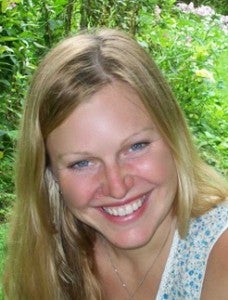 Josie Sigler Sibara is the author of a story collection, The Galaxie and Other Rides, which was selected for the Ruby Pickens Tartt First Fiction Award (Livingston Press, 2012); a book of poetry, living must bury, which won the 2010 Motherwell Prize (Fence Books); and, a chapbook, Calamity (Proem Press, 2009). She is a 2014 National Endowment for the Arts Fellow, and has recently been awarded residencies at The Millay Colony and the PEN Northwest Margery Davis Boyden Wilderness Residency. She holds a dual PhD in Literature and Creative Writing from The University of Southern California. She is an Assistant Professor in English at The URI.
Josie Sigler Sibara is the author of a story collection, The Galaxie and Other Rides, which was selected for the Ruby Pickens Tartt First Fiction Award (Livingston Press, 2012); a book of poetry, living must bury, which won the 2010 Motherwell Prize (Fence Books); and, a chapbook, Calamity (Proem Press, 2009). She is a 2014 National Endowment for the Arts Fellow, and has recently been awarded residencies at The Millay Colony and the PEN Northwest Margery Davis Boyden Wilderness Residency. She holds a dual PhD in Literature and Creative Writing from The University of Southern California. She is an Assistant Professor in English at The URI.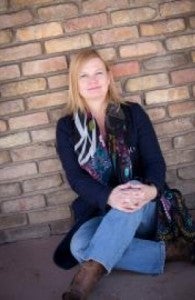 Nicole Walker is the author of the nonfiction book, Quench Your Thirst with Salt which won the Zone 3 creative nonfiction prize, released in June 2013 and a collection of poems, This Noisy Egg (Barrow Street, 2010). She edited, along with Margot Singer, Bending Genre: Essays on Creative Nonfiction, published by Bloomsbury Press in 2013. She has given readings and lectures at The Center for Book Arts in New York City, at Associated Writing Programs in Chicago, New York, and Denver, at NonfictionNow, in Iowa City, as a guest speaker for the Environmental Humanities Conference in Salt Lake City, as an Emerging Writer and at the University of Wyoming. In 2007, she received a fellowship from the National Endowment for the Arts. A graduate of the University of Utah’s doctoral program, she is currently Associate Professor of Poetry and Creative Nonfiction at Northern Arizona University, nonfiction editor of Diagram and editor of the artist/writer collaborative project “7 Rings” on the Huffington Post.
Nicole Walker is the author of the nonfiction book, Quench Your Thirst with Salt which won the Zone 3 creative nonfiction prize, released in June 2013 and a collection of poems, This Noisy Egg (Barrow Street, 2010). She edited, along with Margot Singer, Bending Genre: Essays on Creative Nonfiction, published by Bloomsbury Press in 2013. She has given readings and lectures at The Center for Book Arts in New York City, at Associated Writing Programs in Chicago, New York, and Denver, at NonfictionNow, in Iowa City, as a guest speaker for the Environmental Humanities Conference in Salt Lake City, as an Emerging Writer and at the University of Wyoming. In 2007, she received a fellowship from the National Endowment for the Arts. A graduate of the University of Utah’s doctoral program, she is currently Associate Professor of Poetry and Creative Nonfiction at Northern Arizona University, nonfiction editor of Diagram and editor of the artist/writer collaborative project “7 Rings” on the Huffington Post.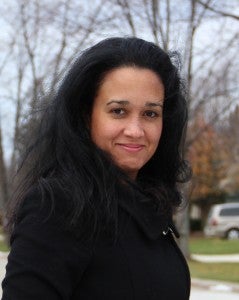 Wendy S. Walters is the author of Troy, Michigan (Futurepoem Books, 2014), Longer I Wait, More You Love Me (2009) and a chapbook, Birds of Los Angeles (2005), both published by Palm Press (Long Beach, CA). Forthcoming projects include a book of essays to be released by Sarabande Books in 2015. Walters was a 2011 New York Foundation for the Arts Fellow in Poetry, and her work has appeared in The Iowa Review, Bookforum, FENCE, Harper’s Magazine, and elsewhere. She has won a Ford Foundation Fellowship, a research fellowship from the Smithsonian Institution, a scholarship from Bread Loaf, and multiple fellowships from The MacDowell Colony and Yaddo. She is a founder of The First Person Plural Reading Series in Harlem, a Contributing Editor at The Iowa Review, and Associate Professor of creative writing and literature at the Eugene Lang College of The New School University in the city of New York.
Wendy S. Walters is the author of Troy, Michigan (Futurepoem Books, 2014), Longer I Wait, More You Love Me (2009) and a chapbook, Birds of Los Angeles (2005), both published by Palm Press (Long Beach, CA). Forthcoming projects include a book of essays to be released by Sarabande Books in 2015. Walters was a 2011 New York Foundation for the Arts Fellow in Poetry, and her work has appeared in The Iowa Review, Bookforum, FENCE, Harper’s Magazine, and elsewhere. She has won a Ford Foundation Fellowship, a research fellowship from the Smithsonian Institution, a scholarship from Bread Loaf, and multiple fellowships from The MacDowell Colony and Yaddo. She is a founder of The First Person Plural Reading Series in Harlem, a Contributing Editor at The Iowa Review, and Associate Professor of creative writing and literature at the Eugene Lang College of The New School University in the city of New York.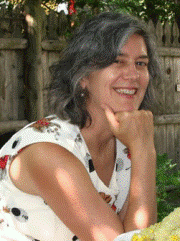 Professor of English at the University of Rhode Island, Jean Walton has published articles on modernism, psychoanalysis and the body in Critical Inquiry, Differences, Discourse, Contemporary Literature and Jump Cut. Her book, Fair Sex Savage Dreams (Duke, 2001) is a reader-friendly plunge into the fantasy-life of psychoanalysis, taking to task the racism of the white women who both embraced and challenged Freud’s theories of sexuality. Her memoir of the melancholia of cat-love, “Thomasina, Thomasina,” appeared in Hotel Amerika. She just completed a memoir about growing up in Vancouver in the seventies, and is currently writing a cultural study of peristalsis: how we experience time through our gut; how we love and hate what we are compelled to take in; how we process the world.
Professor of English at the University of Rhode Island, Jean Walton has published articles on modernism, psychoanalysis and the body in Critical Inquiry, Differences, Discourse, Contemporary Literature and Jump Cut. Her book, Fair Sex Savage Dreams (Duke, 2001) is a reader-friendly plunge into the fantasy-life of psychoanalysis, taking to task the racism of the white women who both embraced and challenged Freud’s theories of sexuality. Her memoir of the melancholia of cat-love, “Thomasina, Thomasina,” appeared in Hotel Amerika. She just completed a memoir about growing up in Vancouver in the seventies, and is currently writing a cultural study of peristalsis: how we experience time through our gut; how we love and hate what we are compelled to take in; how we process the world.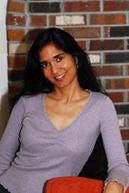 Padma Venkatraman is the author of two critically acclaimed novels – Climbing the Stairs and Island’s End – and has had over 100 nonfiction articles published in American, Indian and European journals. Her debut novel, Climbing the Stairs, was released to starred reviews and won the Boston Authors Club award and the ASTAL RI Book of the Year award, in addition to being shortlisted for several state awards and receiving numerous other honors such as a Booksense Notable citation, an ALA BBYA, a New York Public Library best book for teens, a CCBC/NCSS notable, a Bank Street college of Education best book, a Boolinks best books of summer, a Booklist Editor’s Choice Best Book of the Year, a PW Flying Start, a Capitol Choices selection and more. Her second novel, Island’s End, was released to starred reviews in Kirkus, Bookslist, Publishers Weekly and School Library Journal and is listed on several “best books of 2011” lists: Kirkus, Booklist, ALA, YALSA, Amelia Bloomer and CCBC. Island’s End won the international South Asia Book Award and a Paterson Prize. Her third novel, A Time To Dance, is scheduled for release in February 2014 and she has been invited to speak at the PEN World Voices Festival in New York city this April. Padma Venkatraman lives in Rhode Island and teaches scientific writing at URI.
Padma Venkatraman is the author of two critically acclaimed novels – Climbing the Stairs and Island’s End – and has had over 100 nonfiction articles published in American, Indian and European journals. Her debut novel, Climbing the Stairs, was released to starred reviews and won the Boston Authors Club award and the ASTAL RI Book of the Year award, in addition to being shortlisted for several state awards and receiving numerous other honors such as a Booksense Notable citation, an ALA BBYA, a New York Public Library best book for teens, a CCBC/NCSS notable, a Bank Street college of Education best book, a Boolinks best books of summer, a Booklist Editor’s Choice Best Book of the Year, a PW Flying Start, a Capitol Choices selection and more. Her second novel, Island’s End, was released to starred reviews in Kirkus, Bookslist, Publishers Weekly and School Library Journal and is listed on several “best books of 2011” lists: Kirkus, Booklist, ALA, YALSA, Amelia Bloomer and CCBC. Island’s End won the international South Asia Book Award and a Paterson Prize. Her third novel, A Time To Dance, is scheduled for release in February 2014 and she has been invited to speak at the PEN World Voices Festival in New York city this April. Padma Venkatraman lives in Rhode Island and teaches scientific writing at URI.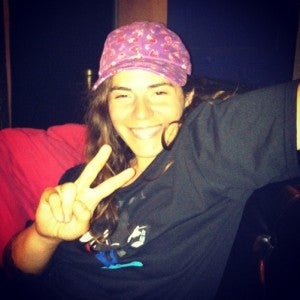 Mickey Zacchilli draws and prints her comic RAV. She also puts out the “__________ Comic” series with Patrick Kyle and Michael Deforge (Butler Comic, Rain Comic, Basketball Comic) where they write comics on a different mundane theme a few times a year. She has printed huge colorful show posters that were all over Providence. She prints out of her home.
Mickey Zacchilli draws and prints her comic RAV. She also puts out the “__________ Comic” series with Patrick Kyle and Michael Deforge (Butler Comic, Rain Comic, Basketball Comic) where they write comics on a different mundane theme a few times a year. She has printed huge colorful show posters that were all over Providence. She prints out of her home. -
Please return for updates. Direct inquiries to ossummerwriting@gmail.com
Thursday, June 19
 PART I: THREE-DAY WORKSHOPS
PART I: THREE-DAY WORKSHOPS12:00 – 1:30 p.m. Registration
1:30 – 3:30 p.m. Workshops Session I
- Beginning Fiction: Instructor – Jody Lisberger
- Intermediate & Advanced Fiction: Instructor – Edward Delaney
- Young Adult Fiction: Instructor – Padma Venkatraman
- Creative Nonfiction: Instructor – Nicole Walker
- Memoir: Instructor – Amy Hoffman
- Beginning & Intermediate Poetry: Instructor – Wendy S. Walters
- Advanced Poetry: Instructor – Stephen Burt
- Screenwriting: Instructor – Rob Cohen
3:30 – 4:30 p.m. One-on-One Consultations
3:30 – 4:15 p.m. Reception and Participant Showcase
4:30 – 5:30 p.m. Reading: Edward Delaney, Amy Hoffman, Maria Mutch, Padma Venkatraman. Welcome remarks from Peter Covino and Thomas Barkman. Introductions by Rachel May.
Friday, June 20
8:30 – 9:00 a.m. Continental Breakfast
8:30 – 12:15 Registration
9:00 – 11:00 a.m. Workshops Session II
- Beginning Fiction: Instructor – Jody Lisberger
- Intermediate & Advanced Fiction: Instructor – Edward Delaney
- Young Adult Fiction: Instructor – Padma Venkatraman
- Creative Nonfiction: Instructor – Nicole Walker
- Memoir: Instructor – Amy Hoffman
- Beginning & Intermediate Poetry: Instructor – Wendy S. Walters
- Advanced Poetry: Instructor – Stephen Burt
- Screenwriting: Instructor – Rob Cohen
 PART II: MAIN CONFERENCE
PART II: MAIN CONFERENCE11:15 a.m. – 12:00 p.m. Box Lunch
- Conversation: “Turning Point” with Ayad Akhtar and Mary Cappello
12:15 – 1:25 p.m. Keynote: Charles Bernstein (free and open to the public) Conference welcome by Provost Donald H DeHayes. Opening remarks from Dean Winnie Brownell. Introduction by Peter Covino.
1:25 – 1:40 p.m. Booksigning
1:45 – 2:45 p.m. Master Class & Craft Sessions I
- Master Class: Playwriting with Ayad Akhtar
- Craft Session: Fiction – Instructor: Russell Potter
- Craft Session: Trance Poetics – Instructor: Kristin Prevallet
- Craft Session: Essay – Instructor: Lisa Lebduska
3:00 – 4:15 p.m. Master Classes, Conversations & Craft Sessions II
- Master Class: Poetry with Charles Bernstein
- Master Class: Fiction with Amity Gaige
- Conversation: On Creative Nonfiction with Mary Cappello, Maria Mutch, Christine Montross, and Nicole Walker
- Craft Session: Science Fiction – Instructor: Paul Di Filippo
- Craft Session: Poetry – Instructor: Elaine Sexton
4:30 – 5:40 p.m. Keynote: Percival Everett (free and open to the public) Opening remarks from Dr. Ryan Trimm. Introduction by Josie Sigler Sibara.
5:45 – 6:00 p.m. Book signing
5:45 – 6:15 p.m. One-on-one Consultations
6:00 – 7:00 p.m. Conference Participant Reception
7:00 – 9:00 p.m. Dinner & Reading: Stephen Burt, Nicole Walker, Wendy S. Walters
Saturday, June 21
8:30 – 9:00 a.m. Continental Breakfast
9:00 – 11:00 a.m. Workshops Session III
- Beginning Fiction: Instructor – Jody Lisberger
- Intermediate & Advanced Fiction: Instructor – Edward Delaney
- Young Adult Fiction: Instructor – Padma Venkatraman
- Creative Nonfiction: Instructor – Nicole Walker
- Memoir: Instructor – Amy Hoffman
- Beginning & Intermediate Poetry: Instructor – Wendy S. Walters
- Advanced Poetry: Instructor – Stephen Burt
- Screenwriting: Instructor – Rob Cohen
9:00 – 11:00 a.m. Discussion Groups & Intensive
- Discussion: Jane Eyre with Carolyn Betensky
- Discussion: Fun Home with Jean Walton
- Discussion: I Am Not Sidney Poitier with Valerie Karno
- Intensive: Poetry Manuscripts with Peter Covino
11:15 – 12:30 p.m. Master Class, Special Presentation, Conversation & Craft Session III
- Master Class: Fiction with Percival Everett
- Special Presentation: Book Art with Susan Bee and Charles Bernstein
- Conversation: Changing Genres with Paul Di Filippo and Russell Potter
- Craft Session: Dialogue – Instructor: Bob Leuci
12:30 – 1:15 p.m. Box lunch
- Ocean State Review Contributors’ Reading: Ellen Goldstein, Jody Lisberger,Michael Martin, and Ilan Mochari
1:15 – 2:25 p.m. Keynote Alison Bechdel (free and open to the public) Introduction by Mary Cappello.
2:25 – 2:40 p.m. Book signing
2:45 – 4:00 p.m. Master Class, Conversations & Craft Session IV
- Master Class: Poetry with Stephen Burt
- Craft Session: TV Writing – Instructor: Rob Cohen
- Conversation: On YA Lit and the Publishing Industry with Malaga Baldi, Sara LaFleur, Shauna Rossano and Padma Venkatraman
4:15 – 5:30 p.m. Conversations & Craft Session V
- Conversation: Pursuing Poetry with Elaine Sexton and Kristin Prevallet
- Conversation: On Graphic Literature with Paul Lyons, Walker Mettling and Mickey Zacchilli
- Craft Session: Novel Writing – Instructor: Jody Lisberger
5:30 – 6:30 p.m. One-on-one Consultations
5:45 – 7:00 p.m. Conference Participants’ Reading
If you have a disability and need an accommodation, please call 401.874.4663 at least three weeks in advance. For TTY assistance, please call the Rhode Island Relay Service at 800.745.5555.
-
Here is a closer look at some of our conference offerings. Check back regularly as new events are added, or follow us on Facebook, where you will find more information about the programs, presenters, writing events in the Northeast, and resources for writers.
 THREE – DAY WORKSHOPS
THREE – DAY WORKSHOPSAttendees enrolling in a Three-Day Workshop may choose to study fiction, creative nonfiction, screenwriting, or poetry. The workshops meet Thursday afternoon, Friday morning, and Saturday morning. Workshops are led by our highly accomplished conference faculty members. Spend several hours in a small, intimate setting practicing writing and learning from one another. Workshops are a great place to get feedback from fellow students as well as a faculty member in a comfortable and supportive environment.
Each workshop meets Thursday, 1:30 – 3:30 p.m.; Friday, 9:00 – 11:00 a.m.; and Saturday, 9:00 – 11:00 a.m.
- Fiction Workshop (Beginner)
Instructor: Jody Lisberger
- In this workshop, we will spend time examining and practicing techniques for developing character, creating conflict and dramatic tension, and using to advantage seen/scene and the unseen, details, setting, and body language. We will also consider effective and strategic beginnings, endings, and use of back-story. The workshop will generate material for participants to develop later into stories. There will be a short writing assignment and reading given in workshop on Thursday, due for Friday, and a short exercise on Friday due for Saturday.
- Fiction Workshop (Intermediate and Advanced)
Instructor: Edward DelaneyThis workshop will focus on writing fiction from the inside out. We’ll start with such important craft aspects as description, dialogue, voice and diction, the “ground-level” writing skills from which the story must rise. We’ll move on Day II to scene-building, beats and reversals, and examine the many stories within stories such as metaphorical language, subscenes and chronological shifts. On Day III, we’ll move into larger aspects of plot, theme and intention. All through this, we’ll try to weave these aspects together, always mindful of where the stories go. We’ll discuss literary markets and the publishing business as an aspect of that. - Young Adult Fiction Workshop (All levels)
Instructor: Padma Venkatraman
- Hearing Voices: Marcel Proust referred to adolescence as “an age which for all its alleged awkwardness, is prodigiously rich.” Focusing on voice – one of the most elusive and important aspects of timeless writing – we’ll take a brief look at classic and contemporary novelists who’ve created timeless voices that express the awkwardness and richness of adolescence. We’ll discuss how voice informs other aspects of craft, such as character, dialogue and even pacing. Through hands-on exercises, you’ll learn how to engage with emotions and use voice to convey strong emotion without resorting to sentimentality. You’ll be encouraged to explore voices that you’re comfortable with and pushed to experiment with voices that make you uncomfortable. Your objective will be to craft a short scene with an authentic adolescent central character (to read on Saturday afternoon, if you wish). If time allows, we’ll also touch on aspects of pacing in coming-of-age novels, or other aspects of craft, in the context of creating Young Adult literature.
- Memoir Workshop (All levels)
Instructor: Amy Hoffman
- What’s the story of your life? Experience is inherently chaotic, and we humans create meaning by shaping narratives: choosing to focus on some details and experiences while leaving others in the background. In this workshop, we will practice this kind of meaning-making using writing prompts (so please bring writing materials); discussing one another’s work; and engaging with assigned readings. We’ll also think about how to make the emotional, creative, and physical space for writing in our daily lives.
- Creative Nonfiction (All levels)
Instructor: Nicole Walker
- This creative nonfiction workshop will center on character/narrator/writer. How does a writer put his body in a place as a character? When does a writer need to use narration to situate her personal story in a larger story context? And when does the writer need to write so close to the bone that the writer’s very thoughts become embedded in the grammar of the essay? We will read and write several brief essays.
- Poetry Workshop (Beginner and Intermediate)
Instructor: Wendy S. Walters
- Deciphering Emotion: In this workshop you will be asked to write about experiences that have emotional resonance. You will need to be brave and willing to hear critiques of how well you have conveyed emotion. Our goal will not be to protect our feelings but to observe them from all angles, take them apart, and hold them up to the light. We will engage in exercises to better understand how emotion functions in strong poems. We will develop techniques to translate our feelings into substantive language. We will consider the function of images, timing, and action we will become more aware of what our audience needs from us in order to connect with the experiences we want to share.
- Poetry Workshop (Advanced)
Instructor: Stephen Burt
- Complex Words: When you look at a poem—whether you wrote it or someone else did—how do you find, and how do you handle, key words? How do you handle loaded words, words that have so much history baked into them, words like “world,” “love,” “woman,” “man”? what about rare words, words from technical disciplines such as particle physics or shoe design? what about words that would not fit a family newspaper? How can a poem repeat a word, or take a word apart? Can poetic forms help? We will look at how words recur, how words come together, and how they come apart: we will see how those words can animate, or enliven, or explode, poems old and new, and how those poems can speak to the language we use elsewhere in our lives.
- Screenwriting Workshop (All levels)
Instructor: Rob Cohen
- We want to write (and sell) a great movie: This workshop is for writers who want their work on screen. There are dozens of books about how to construct the classic Hollywood script, and this class will start there, with the classic 3 act screenplay structure as outlined in The Writer’s Journey. There are so may with screenplays under their arms, who have read Syd Field, Robert McKee etc. And, there is a population of writers in Hollywood who work on creations for the standard menu. So how will you be noticed? By using your voice without completely upending the classic structures. This class will work toward a singular goal: how to be inventive without re-inventing the wheel. By looking at the basics, and engaging in exercises that strengthen those muscles, the class will then move to challenge of originality. Because it is originality that sells.
 MASTER CLASSES (Friday and Saturday)
MASTER CLASSES (Friday and Saturday)Our master class allows you to study with our featured keynote speaker. This class has limited enrollment to ensure that you have a chance to engage with the instructor and fellow classmates.
- Friday, 1:45 – 2:45 pm
Playwriting with Ayad Akhtar
- Story Workshop – We will discuss a few major paradigms of story structure: the hero’s journey; classical three act structure; eleven-point story analysis. The goal will be to provide useful ways of thinking about story for the writer planning a full-length narrative in either screenplay or long-form fiction or stage play.
- Friday, 3:00 – 4:15 pm
Fiction with Amity Gaige
- The Unreliable Narrator – We will start by defining the notion of “reliability” as it applies to both literary characters and to ourselves as creators. We will then discuss how perceiving the interplay between narrator and story can add energy to any work of fiction. Students will be asked to consider their own characters within these terms.
- Friday, 3:00 – 4:15 pm
Poetry with Charles Bernstein
- We may begin with a few group collaborations and writing experiments and then engage the participants in their approach to poetry. Individual works presented will be “deformed” and “reformed” in the spirit of inquiry and new possibilities. Focus will be on poetics not craft. Aim to avert mastery in pursuit of linguistic sensation.
- Saturday, 11:15 – 12:30 pm
Fiction with Percival Everett
- We will discuss the possibility of avoiding all discussions of craft. Fiction is a rule-less endeavor and can be approached as such. We will talk about the myth of convention and what it means to experiment in fiction.
- Saturday, 2:45 – 4:00 pm
Poetry with Stephen Burt
- Poems and Places. What do the poems you write have to do with where you live, with where you have lived, with where you have been, with where you would like to live? We will consider ways that you can put a place into your poems; make your poems speak to, from, or about a place; where “place” can mean anything from a nation or state to a subculture.
 SPECIAL FEATURE
SPECIAL FEATURE- Saturday, 11:15 – 12:30 pm
Artist’s Books with Susan Bee and Charles Bernstein
- Poet Charles Bernstein and visual artist Susan Bee will discuss their decades-long collaboration and the art of reading the artist’s book. Bee will also discuss her collaborations with other poets including: Susan Howe, Jerome Rothenberg, Johanna Drucker, Regis Bonvicino, and Jerome McGann.
 DISCUSSION GROUPS (Saturday 9:00 – 11:00 am)
DISCUSSION GROUPS (Saturday 9:00 – 11:00 am)We believe that there’s no such thing as a writer who isn’t also a reader, and that writers have the most to gain in conversation with literary critical experts and historians. Discussion groups are faculty led conversations based on one or more literary texts written by this year’s Keynote Presenters or other masters. You’ll have the opportunity to investigate a work with your fellow classmates and a faculty expert from URI’s Department of English. Please make every effort to have read the book under discussion before attending this seminar.
- Fun Home: A Family Tragicomic
Instructor: Jean Walton
- Alison Bechdel describes her graphic memoir Fun Home as a labyrinth, “going over the same material, but starting from the outside and spiraling in to the center of the story.” But as a writer setting out, how do you know what the “center” of your story is? What instances of the “outside” will help you find it? And how do you compose a text in which inside and outside will seem to form one coherent whole? As an ardent fan of Bechdel’s graphic masterpiece, I look forward to sharing with others in a lively discussion of her deft manipulation of time, her complex treatment of memory, and her coursing of our attention through literary, mythical, and popular references as she leads back to the heart of her family’s particular “tragicomic.” Ultimately, I hope we will come away with some strategies for enriching our own memoir-writing, whether it be about family, sexual identity, coming-of-age, or coming to terms with a traumatic event.
- I Am Not Sidney Poitier
Instructor: Valerie Karno
- Comedy, Irony, Race, Identity! These are some of the strategies and ideas we will explore as we delve into Percival Everett’s I Am Not Sidney Poitier. How do we understand the self out of negation and othering? How do we know the world and ourselves through the ridiculous, the absurd, the nonsensical? We will also consider the weighty topics of how or if to recognize ourselves through racial, gendered, and projected identifications. We will think about the roles of performance and naming in representation, as we move in and out of places like Peckerwood County. And, if time allows, we will explore the serious questions of “Who is not Percival Everett?,” and “Who is Sidney Poitier?”
- Jane Eyre
Instructor: Carolyn Betensky
- Charlotte Brontë’s most famous novel has long been a favorite among readers young and old. The tale of the misunderstood, homely orphan with acute powers of observation still resonates with peculiar intensity today. Few novels are better thanJane Eyre at harnessing our indignation over injustice, abuse, and neglect; few can rival Bronte’s masterpiece, moreover, in its ability to capture states of self-doubt and self-hatred that ultimately give way to a triumphant self-confidence.
- In our discussion of Jane Eyre, we will focus on Brontë’s strategies for staging, modeling, and managing readerly indignation over the insults her character must endure and the internal battles her character must wage in order to grasp her own self-worth. How does Brontë succeed in pulling her readers into struggles that are not, after all, their own? What techniques does she use to make her readers bristle at the injustices faced by a character she deliberately sets up as a poor, unloved, physically unattractive outsider? How does Brontë get us to cheer Jane on? We will consider Brontë’s not-so-gentle genius at riling her readers with a view toward contemporary techniques authors use to engage their readership. What can writers of the twenty-first century learn from this formidably successful Victorian novel about getting their own readers to care passionately about the fate of their characters?
- Special Intensive: Putting Together a Poetry Manuscript
Instructor: Peter Covino
- This seminar is geared for established and emerging poets who want and want to share practical advice about putting together a poetry manuscript and trying to find an appropriate publisher. The bulk of the discussion will focus on crafting a full-length collection, and when appropriate, smaller chapbook-size projects too. Our main goals will be to demystify the often baffling editorial process of small press publishing. Using two or three samples of anonymous work, this seminar will focus on specific issues of how editors (often quickly) consider issues of manuscript readiness, ordering poems, manuscript structure, and innovative poetic tensions and related techniques.
 CONVERSATIONS (Friday and Saturday)
CONVERSATIONS (Friday and Saturday)“The real writer is one who really writes,” wrote Marge Piercy. Writers make writing a priority in their lives. And to feed their writing selves, they also read and attend readings, enroll in classes, join groups, enter contests, apply for grants/fellowships, explore markets, and learn new technologies to enhance their success once they’re ready to publish. Throughout the conference, we offer moderated conversations with writers about the work of writing.
- Friday, 11:15 – 12:00 pm: “Turning Point”
with Ayad Akhtar and Mary Cappello
- 2013 Pulitzer Prize Winning Dramatist, Ayad Akhtar, and 2011 Guggenheim Fellow in Nonfiction, Mary Cappello, discuss the formulation of turning points in the course of a life, the course of a career, and the course of a piece of writing; the spiritual (as distinct from religious) underpinnings of artistic practice; the place where a writing project begins and where it arrives; the literary traditions their work is in conversation with; the interplay of mastery and humility in the work of making art; and the pleasures and challenges involved in imagining audience.
- Friday, 3:00 – 4:15 pm: Difficult Subjects/Uncommon Ways: Literary Nonfiction as Cross-Over Art
with Mary Cappello, Maria Mutch, Christine Montross, and Nicole Walker
- What sort of research might one be called to do in writing about one’s own life? How does a writer of creative nonfiction treat both the ethical and artistic challenges of telling another person’s story? How and why might one write athwart convention when dealing with such pervasive and urgent matters as cancer, HIV, mental illness, and autism? What governs a writer’s decision to work in the mode of literary nonfiction; memoir; or the essay? How does one “find” one’s subject? Four accomplished writers of literary nonfiction, memoir, and essay discuss their distinct and varied approaches to researched-based literary nonfiction in which science, the body, health, and truth-telling meet.
- Saturday, 11:15 – 12:30 pm: Changing Genres
with Paul Di Filippo and Russell Potter
As writers of fiction and non-fiction, Paul Di Filippo and Russell Potter have varying views on the vast realm of non-fiction writing. Their conversation will map out the differences and overlaps between the two types of discourse each writer practices, and bring to bear the novel-writing experiences of both authors to explore whether more fantastical tactics can ever be applied to non-fiction writing.
- Saturday, 2:45 – 4:00 pm: Conversation on Young Adult Literature and the Publishing Industry
with Malaga Baldi, Sara LaFleur, Shauna Rossano and Padma Venkatraman
- Two editors from Penguin Random House and Literary Agent Malaga Baldi (of Baldi Books) will answer attendees questions about publishing, the state of the book business today and where they see the industry headed in the future. Author Padma Venkatraman will moderate the discussion.
- Saturday, 4:15 – 5:30 pm: Pursuing Poetry
with Kristin Prevallet and Elaine Sexton
- Kristin Prevallet and Elain Sexton will share and field questions on poetry and professionalization. Kristin Prevallet, after receiving an MA in literature and teaching at several universities, decided to pursue a private poetics practice: she is a certified hypnotherapist whose poetics entwines with trance, self-knowledge, and healing. Elaine Sexton teaches at the Writing Institute at Sarah Lawrence College, is an editor of ARTnews, and curates exhibits in New York. For poets deciding what step is next, What does one do after being energized at a conference? What avenues are available to poets? What are effective means to share one’s work with larger audiences? And how does one build a community locally and professionally?
- Saturday, 4:15 – 5:30 pm: Alternative Comics
with Paul Lyons, Walker Mettling and Mickey ZacchilliThe creators of alternative comics, like all independent artists, wear many hats. They are artists, writers, printmakers and DIY publishers. From anthologies to zines, comic strips to large format, comics take many forms. Three independent and local comics artists will share their experiences on publishing, craft, building community, and why they are drawn to comics.
 CRAFT SESSIONS (Friday and Saturday)
CRAFT SESSIONS (Friday and Saturday)Our 60-minute craft sessions are designed around a particular aspect of, or approach to, writing and are often genre-specific. Participants will read and discuss examples of writing, then get a chance to complete a short in-class writing assignment. Craft sessions are a chance for you to consider a particular aspect of writing, respond to a prompt on-site, and see how other attendees respond to your work.
- Friday, 1:45 – 2:45 pm: Creative Nonfiction – Minding the Eye
Instructor: Lisa Lebduska
- “Where do I begin?” Our craft session explores how personal essay writers have approached this question of un-ending. We’ll start by reading several excerpts, discussing what we see, and what interests us before tackling our own beginnings. Participants should bring a topic and a willingness to share their writing.
- Friday, 1:45 – 2:45 pm: Potential and Perils of First Person
Instructor: Russell Potter
- From Melville’s Ishmael to Brontë’s Jane to Beckett’s Molloy, fiction in the first person has proven to be a compelling one for readers. For writers, it solves a problem, merging narrative and character into the same stream, consciousness and plot advancing in unison. Yet it also can blur the line between eye and I, between author and narrator, the hallmark of the all-too- semi-autobiographical first novel that, like a burnt batch of Jiffy-Pop, was surely more fun to make than was to eat. It’s also common within many emerging genres, from creative nonfiction to Young Adult fantasy. In this craft session, we’ll explore the potential as well as the perils of the first-person narrative through brief readings, in-class exercises, and discussion.
- Friday, 1:45 – 2:45 pm: Embodied Narratives: Revising Your Cellular Stories
Instructor: Kristin Prevallet
- For centuries, trance narratives have led people into wild dream and trance states where neurochemical and biological healing processes are activated. For writers and artists, following these narrative threads might awaken characters and plots, or unlock elliptical poetic processes useful for the generation of new work. If out of this workshop you write a few amazing poems or stories, that’s terrific; if you (among other things) learn how to overcome emotional blocks, deal with pain in a new way, and take action to change the catastrophic future, that’s the learning of an embodied poetics that can last a lifetime.
- Friday, 3:00 – 4:15 pm: Maximalism in Science Fiction
Instructor: Paul Di Filippo
- The school of literature known as maximalism is typified by the work of such mainstream writers as John Barth, Thomas Pynchon and David Foster Wallace. But the approach of stuffing a work of fiction with as much content, character and contexts as possible also applies to science fiction, the literature of ideas. In this session, author Paul Di Filippo, whose own work often exemplifies this approach, will offer a brief but concise survey of past landmarks of “maximalist science fiction” that can serve as inspirations for the writer who wishes to adopt this approach. Distilling the essence of these works into a set of techniques that can be employed consciously by the writer to craft new maximalist SF, the session will offer a roadmap to the construction of such “information overload” science fiction.
- Friday, 3:00 – 4:15 pm: The Micro-book
Instructor: Elaine Sexto
- In this class we will consider the visual, sonic, and structural devices used by contemporary poets to create rhythm, tension, and surprise in their work. As the words, lines, stanzas, poems, and the page, itself, are all containers, the micro-book is the perfect space to experiment with new shapes and forms. Students will learn to make the simplest of handmade books in class and experiment with classic and hybrid devices such as erasures and altered text as a way to revise and fine-tune poems in progress. Participants are asked to bring multiple copies of their poems to class. No previous experience in book arts required.
- Saturday, 11:15 – 12:30 pm: Dialogue
Instructor: Robert Leuci
- You will have the opportunity to spend an hour learning how to write good dialogue along with candid subtext. If you want to write both skillful and accurate dialogue you must do two things, read a lot and listen a lot. There is no shortcut, no way around it. Every conversation you over-hear or participate in, has its own lesson or lessons. We will study how you can learn to know your characters inside and out and, in doing so you learn to write dialogue and subtext. Recording conversations where and with whom; whenever you can, you should record as many conversations as possible. We will also discuss the various ways to accomplish that tricky little feat without losing friends.
- Saturday, 2:45 – 4:00 pm: Television Writing
Instructor: Rob Cohen
- “What can you write in 30 seconds? 30 minutes? 1 hour?” Movies, Novels and Theater don’t have a clock. Only Television is the writer’s medium with a time limit. Sitcoms, episodic dramas, reality television and non-fiction programming all have their meters that tick, tick, tick as their stories unfold (around the commercial breaks, of course). This seminar will examine the writing disciplines that television demands. The pace and brevity of television is just the kind of muscle that writers from other mediums can learn to exercise. Examples from across the television landscape will be coupled with in-seminar writing exercises.
- Saturday, 4:15 – 5:30 pm: Writing or Wanting to Write a Novel or Book-length Memoir—Strategies for Success
Instructor: Jody Lisberger
- This craft session will involve a series of exercises to help writers who are in the midst of writing of novel or keen to write a novel and want think about and put on paper some key elements that will help them check the current path they have or the one they’ve been thinking about. It will also be helpful for those writing book-length memoir and creative nonfiction. This craft session will emphasize key elements like: creating sympathetic and interesting characters, developing and maximizing the potential of/for antagonists, structuring for dramatic tension, and connecting to deep yearning and interiority.
- Fiction Workshop (Beginner)
 Home
Home Browse
Browse Close
Close Events
Events Maps
Maps Email
Email Brightspace
Brightspace eCampus
eCampus



